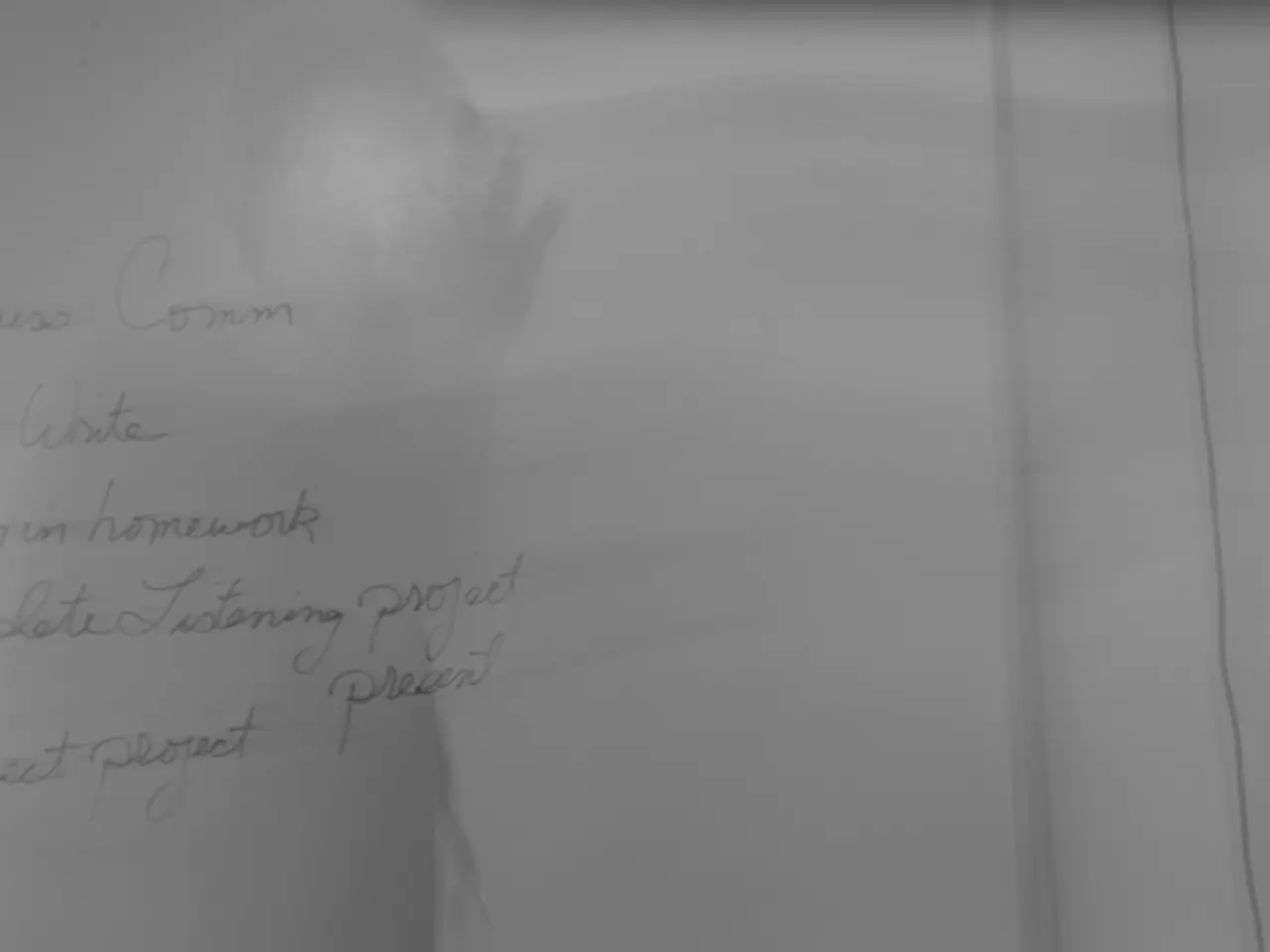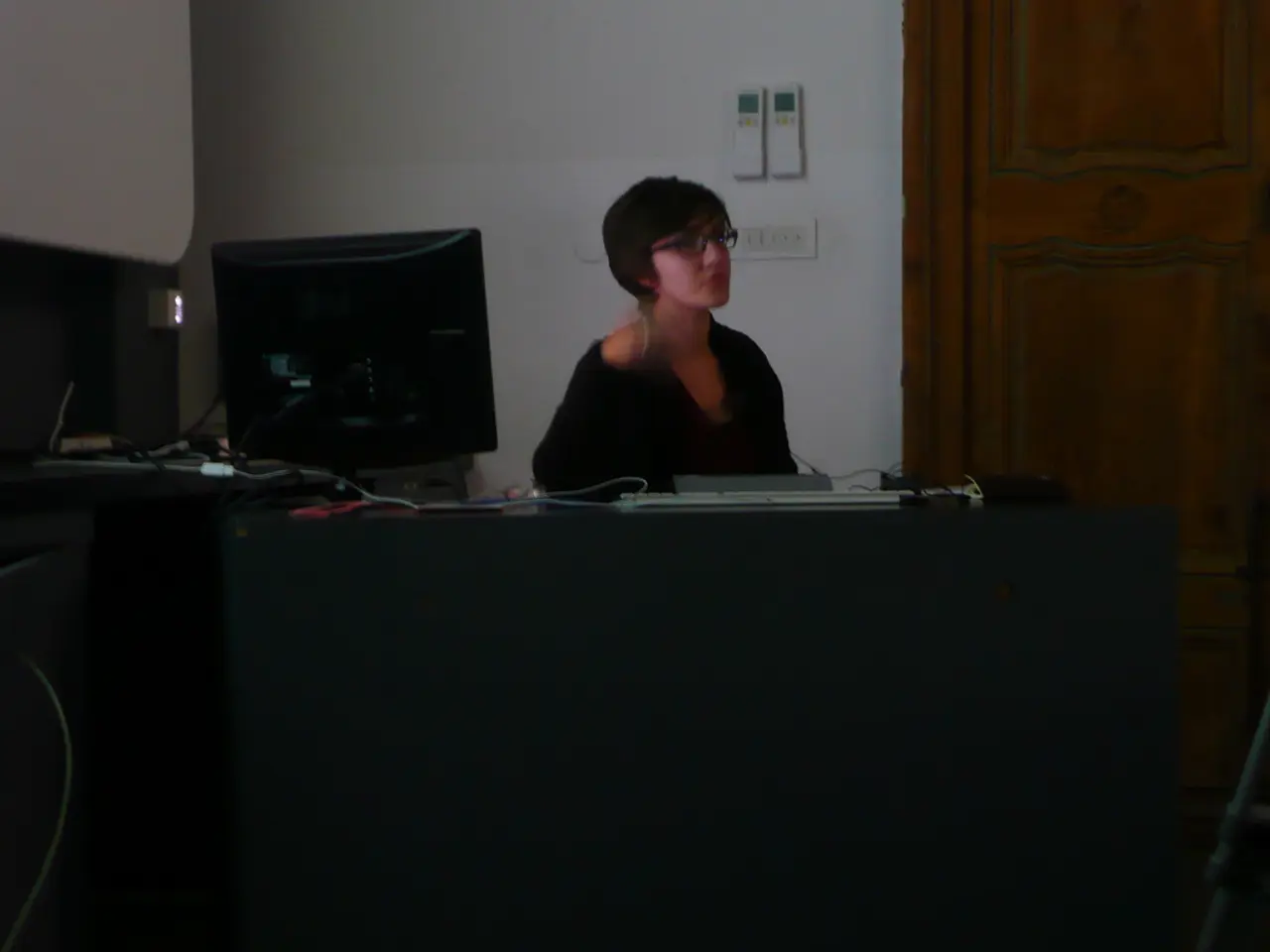Milei intends to clean and reintegrate illicit funds from Argentina into the country's financial infrastructure.
Nonconformist Javier Milei's Economic Disruption in Argentina
Javier Milei is a game-changer in Argentina, causing a ruckus since taking office. He sliced budgets, shuttered nine ministries, and axed thousands of regulations in just over a year. Despite his austere measures, a longstanding issue persists: the Argentina-wide shortage of U.S. dollars.
The country is in dire need of foreign currency to settle debts with private and institutional creditors. In mid-April, the International Monetary Fund granted its onerous debtor its 23rd loan, amounting to $20 billion. The government's primary goal is to secure funds for paying off interest on the colossal $40 billion loan from 2018. However, the new IMF cash won't be utilized for daily essentials like imports or peso support.
Jamming the Presses, Yet Intending to Fight Inflation
But Milei and his finance minister, Luis Caputo, need foreign currency for something more pressing: taming the inflation rate, currently standing at 45% year-on-year. To achieve this, they plan to force industries to curb production costs by reducing access to imported goods. Despite the economic requirement of fresh money, Argentina is incapable of paying for imports using pesos. To attain the IMF's projected 5% growth for 2025, the economy demands a cash injection. Milei has frozen the printing press for a full year, determined to slash the amount of pesos that could be exchanged for dollars, and escaping the financial system. Argentina's middle and upper classes have long used this trick to protect their riches from inflation, resulting in a staggering $400 billion in dollar reserves. According to the statistics office Indec, around $193 billion is tucked away in cash, safes, and beds, while the rest is secreted away in the murky depths of the global financial arena, such as Panama, the Cayman Islands, or the Comoros.
Milei Attacks Financial Authorities
Milei has publicly rebuked the nation's financial officials, likening them to criminals. Last year, his finance minister, Caputo, implemented a tax amnesty that permitted citizens to legalize up to $100,000 in black dollars without paying state taxes or facing evasion penalties. Taxes on higher sums, ranging from 5 to 15%, still applied. Milei now purports to waive these taxes in the near future and demands that banks no longer scrutinize the origins of these funds, which is almost always illegal. The numerous currency controls in place until April, however, left few formal methods of obtaining the reserve currency for years, and it is likely that the funds in question are ill-gotten money, including undeclared income, bribes, and funds derived from illegal activities such as drug trafficking, arms trading, or people smuggling.
No Need to Worry About the Source
In his quest to revitalize the economy, Milei intends to disregard the origins of the freshly resurfaced foreign currency. He claims that banks should no longer inquire about the assets' origins. Not surprisingly, critics maintain that big cash stashes are likely the result of unsavory means and the government may face repercussions if they brush these concerns aside. The international Financial Action Task Force (FATF), established to combat money laundering, has kept Argentina under observation for years. If the FATF designates Argentina as belonging to the "grey zone," Caputo may swiftly find the door closed when seeking new loans on the financial markets.
"People keep their dollars hidden away - because they're afraid," Minister Caputo explained, referencing past practices under Milei's predecessors. The tax authorities under former governments (2003-2015) persistently tracked the transactions of ordinary citizens. Credit card companies were mandated to report clients' payments, banks were compelled to disclose account balances over $800, all cash withdrawals were recorded, as were transfers over $800. Healthcare providers, educational institutions, online retailers, and electronic wallet providers were also required to report contributors. To entice black money holders, Milei and Caputo propose lifting several laws and extending greater leniency to ordinary citizens. If the government hopes to attract both cash-rich individuals and banks, it must change the laws regulating financial surveillance. However, it is uncertain whether the populace will entrust their hoarded dollars to the authorities before the October elections. Caputo has put forth a series of immediate measures by decree to instill public trust. Beginning on June 1, the continuous financial monitoring of ordinary citizens will cease. Beginning on June 1, banking transaction reporting limits will significantly increase, as will those for electronic wallets. The state wishes to turn a blind eye to allow ordinary citizens the freedom to mobilize their dollars. Yet, larger assets will continue to be controlled. Argentina surely desires to steer clear of a confrontation with the FATF.
Insights:- Hoarding U.S. Dollars and the government's proposal to waive taxes on these dollar holdings have critical implications for Argentina's economy and financial system.- Hoarding dollars can distort the economy by favoring the accumulation of real assets or stable currencies rather than productive investment or consumption.- Waiving taxes on dollar holdings may help bring more dollars into the formal financial system, but it doesn't address underlying inflation drivers and structural economic issues, potentially leading to persistent instability.- Javier Milei's plans for forcing industries to produce more cheaply by making imported goods scarcer may further distort the economy by exacerbating inflationary pressures and worsening shortages of needed imports.- The government's proposal to overlook the origin of newly found foreign currency may bring a short-term infusion of dollars, but it faces potential long-term risks due to issues such as the international Financial Action Task Force's (FATF) ongoing observation of Argentina.- It is essential for the government to address the core structural issues underlying economic instability, including strengthening fiscal discipline, implementing comprehensive economic reforms, and fostering confidence in the peso, to create a lasting positive impact on Argentina's economy and financial system.
- The financial disruption initiated by Javier Milei in Argentina has extended to the realms of business, politics, and general news as he seeks foreign currency to combat inflation, with implications that could affect the overall economy and financial system.
- In Milei's controversial plan to revitalize the economy, he intends to disregard the origins of foreign currency influx, raising concerns about money laundering and potential repercussions from the Financial Action Task Force (FATF).




